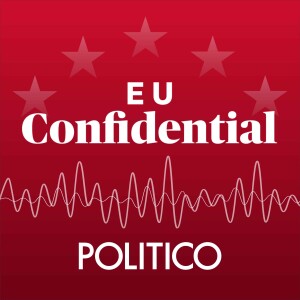Oil, gas and coal still made up 81.5 percent of the global energy mix in 2022 — down just 3 percent from 2015, when the Paris climate agreement was signed.
Given the slow pace of the energy transition, carbon capture and storage, or CCS, has the potential to become an important technology for achieving net zero. Advocates believe that without CCS — which gathers emissions, processes them and stores them safely underground — we simply won’t meet our climate targets.
But the technology faces a range of obstacles. Campaign groups believe CCS offers oil and gas companies a free pass to keep extracting and burning fossil fuels. Others worry about the safety of stored carbon dioxide. There are also practical constraints. CCS technology, while proven, is expensive to install, and needs subsidies and financial incentives to encourage the industry to make the short-term capital investment needed.
In this podcast episode produced by POLITICO Studio, science and technology writer Adam Green interviews leading European experts from industry and policy about the need for CCS, what’s holding it back and where it fits into Europe’s energy transition.
Ruth Herbert, CEO of Carbon Capture and Storage Association, breaks down the fundamentals of CCS. Chris Davies, a former member of the European Parliament and now director of CCS Europe, talks about the need to educate the public on the safety of onshore CCS. Jan Theulen, of building material producer Heidelberg Materials, explains why industries such as cement, where production itself results in large CO2 emissions, will need CCS most. And Torbjørg Klara Heskestad, vice president for global CCS solutions at Equinor, speaks about shared infrastructure that will help reduce the costs of CCS for carbon emitters.
Hosted on Acast. See acast.com/privacy for more information.
More Episodes
2023 crystal ball — Qatargate update — Slovenian PM Robert Golob
 2023-01-05
2023-01-05
EU rocked by Qatar corruption scandal — 2022 highlights
 2022-12-15
2022-12-15
From Tirana: Western Balkan bid — Author Misha Glenny — City of spies
 2022-12-08
2022-12-08
Brewing EU-US trade war — Ukraine FM Dmytro Kuleba — Future of Europe
 2022-12-01
2022-12-01
Brussels' Twitter headache — Kyiv Mayor Vitali Klitschko — EU 'Superstate'
 2022-11-24
2022-11-24
G20 summit digested — Viktor Orbán's authoritarian journey
 2022-11-17
2022-11-17
COP27 and Europe's climate role — A new Cold War?
 2022-11-10
2022-11-10
Europe braces for US mid-term elections
 2022-11-03
2022-11-03
NATO Chief Jens Stoltenberg — Commissioner Věra Jourová on EU media freedom
 2022-10-27
2022-10-27
Live from EU leaders meeting on energy, Ukraine and China
 2022-10-21
2022-10-21
Putin's escalation — Western Balkan migration concerns — Food security update
 2022-10-13
2022-10-13
From Prague: The European Political Community is here
 2022-10-07
2022-10-07
Italian election — Pipeline problems — EU ambassador to US
 2022-09-29
2022-09-29
UN General Assembly — Russian escalation — EU reaction
 2022-09-22
2022-09-22
State of the European Union — MEPs debate
 2022-09-15
2022-09-15
Energy emergency — Canada's EU ambassador — New host Suzanne Lynch
 2022-09-08
2022-09-08
POLITICO's EU Confidential trailer
 2022-09-01
2022-09-01
Monkeypox in Europe — Big Tech vs. Telecoms battle
 2022-08-04
2022-08-04
Russian propaganda — Macron in Africa — Cities for women
 2022-07-28
2022-07-28
Heat wave — Energy vs. climate — Crypto spotlight
 2022-07-21
2022-07-21
Create your
podcast in
minutes
- Full-featured podcast site
- Unlimited storage and bandwidth
- Comprehensive podcast stats
- Distribute to Apple Podcasts, Spotify, and more
- Make money with your podcast
It is Free
You may also like

POLITICO Europe


- Privacy Policy
- Cookie Policy
- Terms of Use
- Consent Preferences
- Copyright © 2015-2024 Podbean.com




 iOS
iOS Android
Android